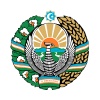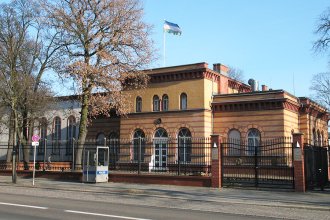 |
The Embassy of Uzbekistan in Berlin |
Contact

Address: Perleberger Str. 62, 10559 Berlin, Germany
Tel.: 030 394 098 0
Fax: 030 394 098 62
E-mail: botschaft@uzbekistan.de
The Ambassador
Amb. H.E. Mr. Dilshod Akhatov
History
Uzbekistan regards Germany as its most important partner in the European Union. Cooperation encompasses a whole range of areas within society. Dialogue with Germany covers not only the overall conditions for trade and investment, which for years have been difficult, but also addresses human rights issues.
Uzbekistan is supported by Germany, to engage in regional cooperation and advocates continuing a critical dialogue with Uzbekistan with the aim of promoting further democratic reform and improving the human rights situation in the country.
As a supplier of imports, Germany ranks in sixth place among Uzbekistan’s trading partners in 2015, accounting for 2.1 per cent of the country’s entire foreign trade. German companies’ interest in Uzbekistan focuses mainly on trade and less on investment. The Uzbek government is seeking to improve the investment climate, but huge problems remain.
Cultural cooperation is based on the cultural agreement, which was signed in 1993 and has been in force since 2002.
There are close contacts in higher education, including three institute partnerships in German studies and a double degree programme in cultural heritage preservation.
In recent years, there has been a lively exchange between German and Uzbek artists. Projects organised by the German Embassy and other German organisations increasingly being conducted in Uzbekistan’s provinces. These include concerts and master classes with German artists, theatre workshops and sporting events.
Through the Federal Foreign Office’s Cultural Preservation Programme, the Federal Government plays a significant role in preserving Uzbekistan’s unique architectural heritage. The projects conducted so far include work on the dome of the Tilla Kari Madrassa in Samarkand, the Shakhi-Sinda necropolis, the Ishrat-Khana Mausoleum in Samarkand and the Abdul Aziz Khan Madrassa in Bukhara, as well as projects to digitise 5,000 old glass-plate negatives at the Museum of History and Art of the Uzbek People and to preserve ancient manuscripts at the Uzbek Academy of Sciences, Nukus.




